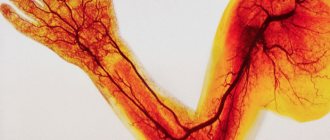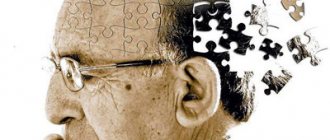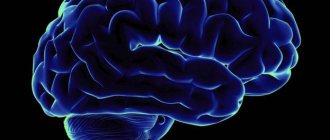Bulimia is often equated to anorexia in terms of the severity of its consequences. These are two similar diseases. The difference is that in the first case a person suffers from a pathologically increased appetite, and in the latter - from its absence. As a result, with both bulimia and anorexia, there is a serious metabolic and digestive disorder, abnormal body weight, and concomitant diseases. Only with bulimia does a person’s weight fluctuate and can rise and fall sharply. Anorexia is characterized by complete exhaustion. Having figured out what kind of disease bulimia is, you need to familiarize yourself with the features of its treatment. If you do not eliminate the problem at an early stage, it will be much more difficult to deal with it in the future.
How does the disease manifest itself?
Patients can eat to their heart's content in secret, then provoke vomiting to get rid of the food that was eaten, while in public they try to eat in moderation, without standing out from the rest, or eat almost nothing. If someone comes while eating food or other disturbances appear, the patient quickly interrupts the meal and tries to hide in shame. He often prepares for the consumption of food in advance: he makes purchases in large quantities and even steals. Such people often manage to hide their problem from others for a long time, but when everything comes out, their way of life is disrupted.
How else can you understand that someone close to you is sick? With bulimia, symptoms can manifest in different ways.
Prejudice about bulimia
Many people have heard about bulimia, but this diagnosis is often misinterpreted . Most people mistakenly believe that bulimia is either gluttony, excessive thinness, or a banal indigestion.
Bulimia is often talked about as a relatively new disease caused by the fashion for extreme thinness in women. But that's not true.
Bulimia can occur as a result of any food control . There have been recorded cases of bulimic behavior for religious reasons, for example, in violation of strict fasting. In these cases, the guilt also has a religious connotation.
Many people believe that bulimia is a whim due to the fact that a person simply does not know how to control himself. But that's not true.
Bulimic attacks occur in a state of darkened consciousness , and questions of control or will are generally inappropriate here. The issue of control is when a person on a diet looks sadly at the candy and decides whether to eat it or not, and after eating it, he thinks how delicious it is, but he can’t eat it anymore. With bulimia, a person does not hesitate and does not think about what to do more wisely, since reason has no power over him at all during attacks. Bulimic seizures are close to a state of panic, they even have similar somatics: tachycardia, dizziness, shaking hands, fog before the eyes and an animal feeling of fear.
Disease progression
As the disease progresses, thoughts about food occupy people more and more: professional, interpersonal and family problems move into the background. At first glance, it is quite problematic to identify those suffering from bulimia, since they look like healthy, normal people, simply too demanding of themselves and others, prone to depression and loneliness. They tend to have low self-esteem and high standards. The life of such people is almost entirely focused on food, the need to hide their mania from others and, in fact, on their figure. To make a diagnosis, it is necessary to record repeated episodes of overeating after a relatively short period of time, for example, less than 2 hours. These people need the help of specialists. The latter will be able to explain how to get rid of bulimia.
Treatment of pathology
Effective treatment is impossible without psychotherapy. One of the most effective methods is a comprehensive approach, which includes elements of medication, cognitive-behavioral and psychoanalytic therapy.
Psychoanalysis will help the patient to work through and understand the unconscious deficits and conflicts that provoke the symptoms of bulimia.
Cognitive behavioral therapy for the treatment of the disease includes standard elements of behavioral therapy, but the focus is on changing and identifying erroneous psychological attitudes, opinions and thought patterns that can cause and exacerbate bouts of binge eating or even refusal to eat in bulimia.
How to treat this pathology yourself? This question interests many. Let's try to figure it out.
Which doctor should I contact?
When treating bulimia, the approach must be comprehensive, therefore, during therapy, a person requires mandatory supervision from several specialists at once. Initially, you should contact a therapist, neurologist and gastroenterologist. These doctors will take a medical history and prescribe the necessary tests.
Once the diagnosis is confirmed, the patient is prescribed a course of treatment, which can take place either on an outpatient basis or in a clinic. In more severe cases, the help of a psychiatrist may be required.
Treatment for Bulimia Nervosa
When asking how to treat bulimia, it is important to understand that therapy should be tailor-made for each patient individually, depending on the degree of neglect of the condition and the causes of the disease.
Traditional treatment involves drug therapy and mandatory psychological assistance. Folk recipes and herbal medicine, home methods of treating the disease can be used as auxiliary methods.
Moreover, the help of loved ones is very important in the treatment of bulimia. Thus, the main task of the family is to eliminate the factors that affect the sick person at home.
Group therapy
Various forms of family therapy are widely practiced, the task of which is to help family members and change factors that can influence the development of any thinking pathologies in patients with bulimia. The blame for the disease lies not only with the patient. And when he begins to recover, group therapy is more effective. When communicating in a group, participants have the opportunity to share experiences, learn about similar experiences of other people, and talk about methods of overcoming the disease. In addition, when a person helps others, it helps to increase the individual's self-esteem. But the group must be led by an experienced leader who has undergone special training.
What is bulimia really?
The presence of bulimia is confirmed by the following signs: uncontrolled absorption of food followed by a desire to get rid of it (usually by vomiting, using laxatives and/or diuretics) due to feelings of guilt.
In the absence of any of the above components, a diagnosis of bulimia cannot be made. For example, gluttony without subsequent release from what was eaten may be a sign of some kind of neurosis or stressful condition, but is not a sign of bulimia. It may be quite natural to get rid of what you have eaten due to food poisoning, and this also has nothing to do with bulimia.
Bulimia is a compulsive disorder , that is, it is characterized by the presence of so-called attacks or fits with subsequent normalization of the condition. For example, compulsive disorders also include panic attacks. That is why many, even close people, may have no idea about a person’s illness.
have been looking for the root cause for many years , but have still not agreed on a common opinion.
To date, two associated factors that are characteristic of those suffering from bulimia. These are hormonal disruptions and lack of serotonin . Therefore, as a rule, psychiatrists prescribe antidepressants (fluoxetine is still in first place in popularity) and hormonal agents .
Currently reading: Seni Optima diapers
Drug treatment and hospitalization
Many studies have been conducted on patients with bulimia, which have shown that they have a key disorder - a deficiency of serotonin in the blood. Drug therapy is precisely aimed at replenishing this deficiency. Antidepressants cope well with this problem. The best reviews have been received by the new generation of drugs, namely selective serotonin reuptake inhibitors (SSRIs).
Let's figure out how to get rid of bulimia with the help of medications.
What should you take?
In addition to the positive effect on the patient’s mental health, medications help reduce appetite, which leads to cleansing of the body. Additionally, doctors prescribe small dosages of antiemetics that relieve nausea and give a feeling of fullness: Ondansetron, Metoclopramide. The following effective antidepressants can be purchased without a prescription: Celexa, Fluoxetine, Prozac, Sertraline, Venlafaxine, Paxil.
These are not all drugs for treating bulimia.
There are groups of drugs for the treatment of convulsive pathologies: “Maxitopir”, “Topreal”, “Topsaver”. They help reduce uncontrollable desire to eat and maintain normal mood. To eliminate addiction and affective psychosis, medications used to get rid of alcoholism and drugs (Lithium Carbonate, Vivitrol, Naltrexone) are prescribed.
If the symptoms of bulimia begin to appear more often and more strongly, they resort to immediate hospitalization in a psychiatric hospital based on vital signs (if the disease is accompanied by anorexia and weight loss from the original by more than 20%).
An important aspect is the appointment of therapy at an early stage, which would combine psychotherapeutic influence and drug treatment of bulimia, including psychotherapeutic work with the family and long-term observation with mandatory therapeutic correction at home upon completion of the main course. Treatment of pathology begins from the moment of the first contact of a psychotherapist or doctor with the patient. Psychotherapy in a hospital is carried out not only by the assigned doctor, but also by the entire medical staff.
How to get rid of bulimia on your own and lose weight? More on this later.
Symptoms
To identify certain symptoms and treatment that must be prescribed according to the stage of the disease, medicine identifies several signs:
- fluctuations in the patient’s weight category;
- unconscious cravings for food;
- low self-esteem of the patient regarding his own figure;
- administration of drugs that, in the patient’s opinion, help eliminate the consequences of the disease: diuretics, emetics, laxatives, enemas .
In addition, there are a number of signs due to which a healthy person can identify symptoms of bulimia in a relative and seek treatment from a doctor:
- conducting conversations about proper nutrition, extra pounds and diets;
- bowel dysfunction due to frequent overeating;
- rapid weight gain and equally rapid weight loss, provoked by specific methods;
- identifying signs of frequent provocation of vomiting - problems with the oral cavity, sore throats, stomatitis;
- burst blood vessels on the surface of the eyeball due to a sharp increase in pressure due to vomiting;
- the occurrence of seizures, problems with the liver and cardiovascular system;
- skin problems – dryness, premature aging;
- disturbances in the menstrual cycle.
Advice! If symptoms of bulimia are identified, you should seek treatment from a specialist, rather than waiting for the problem to resolve on its own.
Bulimia nervosa
Bulimia nervosa is a type of the disease. The disease leads to complex consequences not only physically, but also psychologically.
The following symptoms are identified for bulimia nervosa:
- There is an unreasonable feeling of hunger that cannot be suppressed by normal portions of food.
- Gluttony is accompanied by the consumption of any food that comes to hand and in sight. Immediately after the attack ends, the feast stops.
- Hunger may be present constantly; the patient can eat food all day long
without stopping. - The occurrence of night eating - the patient spontaneously wakes up in the middle of the night, trying to drown out the undying feeling of hunger.
- The patient is depressed and shows signs of depression. The person cuts off all contacts with the outside world, becomes withdrawn and unsociable. A good mood appears only at the time of eating.
Such symptoms are observed only when bulimia nervosa is present. The patient is unable to control the attack and the possibility of its termination. At the same time, one should not confuse one-time overeating after exercise, stressful situations or extreme sports. The nervous manifestation of the disease affects the person more strongly and reveals a number of problems.
Psychotherapeutic work
Psychotherapeutic work is aimed at correcting the patient’s ideas about ideal weight and ways to help maintain it. Patients are provided with assistance in developing the skill of rational nutrition and achieving an understanding of the role of personal-emotional problems in the development of eating disorders.
Explanatory therapy is carried out to explain the need for inpatient treatment, as well as discuss appropriate activities, diet and hospital stay. A variety of incentives are available for patients who try to comply. Junior medical staff have observation sheets for each patient, where they note both nutrition and physiological indicators.
With bulimia, psychosomatics is of great importance.
As practice shows, the basic principles of implementing this approach are to treat the disease in a hospital setting with round-the-clock monitoring of patients and the implementation of complex treatment, which combines psychotherapeutic approaches, diet and other measures to normalize nutrition, including medication, which is addressed Special attention.
But if the case is not advanced and a person shows interest in the possibility of getting rid of the disease, is it possible to help him without resorting to the services of doctors? How to treat bulimia yourself?
Recommendations
Advice for bulimics: learn to live as who you are - whether you are a former bulimic or in the active phase. Remember that you will never become like “normal” people - you need to build your life based on this. Don't close your eyes to your problem. The “last” breakdown is never the last if you are still alive. Find ways to cope with breakdowns.
Advice for everyone else: Perhaps someone close to you suffers from bulimia, and you don’t know it. Perhaps you have already encountered such people and turned away from them without trying to understand their problem. Perhaps you would like to help them, but don't know how. In any case, do not reject people if they have trusted you. Don't judge your loved ones - they are not to blame for what happened. You don’t judge those who have a weak heart or poor eyesight. And even though communication with people who have mental disorders is not always pleasant, do not forget that these are also people who require support and attention.
Based on materials - Intricate Combinations

Panic attacks Anxiety disorders Alcoholism How to reduce blood pressure Recipes for cleansing the body
Self-medication of the disease
The fight against overeating and resulting obesity must be waged persistently, over a long period of time and in a systematic manner. You need to get ready to lose weight right away. You also need to get used to daily, constant physical activity, recreational sports and exercises. The conduct of classes should not be influenced in any way by mood or weather. This will allow you to wash away reserves and excess fat from fat cells.
Monitoring eating behavior comes down to the need to count each piece of food eaten, especially fatty foods (fat of animal origin): pates, sour cream, kebab, butter, mayonnaise, milk, etc. If possible, preference should be given to vegetable oil and all foods high in fiber (dried fruits, pears, apples). When you really want to drink tea with something sweet, you can eat some raisins, figs, and dried apricots. Porridges, especially barley, buckwheat, oatmeal and even rice, are considered very useful for safe saturation.
If a person does not have the opportunity to see a psychotherapist or reflexologist, he should work on himself on his own. Here it is important to establish a dialogue with yourself, especially with the part prone to overeating. Fighting bulimia is not an easy task, but it is still possible to win this battle.
Herbal teas to help
Before starting self-treatment, you must first cleanse the body, regulate the gastrointestinal tract and get rid of the stress that caused the disease. And herbal remedies that work in several directions at once can help with this:
1. Sedative. Treatment of emotional instability is easily carried out with the help of St. John's wort. It is necessary to brew 1 teaspoon of the herb twice a day and drink it with honey and lemon juice. At night you need to take baths with 7-10 drops of lavender essential oil, which also has a calming effect.
2. Suppressing appetite. A herbal mixture of St. John's wort, horsetail, yarrow, lemon balm, chamomile, wheatgrass root, and dandelion root will help cope with bouts of gluttony. The ingredients are mixed, and then 1 teaspoon of the raw material is brewed with a glass of boiling water and left for half an hour. The decoction should be drunk 20 minutes before meals.
3. Normalization of digestion. Every day you need to brew tea after lunch from a pinch of cardamom, fennel seeds, a piece of grated ginger, lemongrass, which are taken in equal proportions. This will provide invaluable help for bulimia.
Phytotherapy
According to patient reviews, decoctions of figs and plums are good for bulimia. You can also use chamomile infusion, mint tea and corn silk decoction. These drinks will reduce the feeling of hunger.
Additionally, you can use the following recipes:
- Pour a glass of boiling water over a spoonful of wormwood. Infuse and take before meals.
- Take 20 ml of flaxseed oil three times a day.
- Pour boiling water over the chopped celery and boil it. Drink a glass of the decoction.
- Grind mint with parsley. Pour boiling water over it. Take when you are very hungry.
Prevention
Reducing the risk of bulimia is quite simple. To do this, the family must have a healthy psychological climate and normal upbringing of children. There is no need to limit your child’s food intake or punish him or criticize him about his appearance and weight.
Adults should adhere to these recommendations:
- For depression, take antidepressants.
- Don't obsess over your weight.
- Don't follow too restrictive diets.
- Have a well-balanced diet.
- Be able to adequately assess your weight and control your diet.
Author of the article: Evgeniy Sergeevich Korunsky, psychotherapist
Bioenergy therapy
Increasingly, people began to resort to bioenergy therapy to eliminate the problem. This technique is the use of various techniques that restore the destroyed human biofield. Through interaction with energy and visualization, a bioenergy therapist corrects distortions in the patient’s aura, which promotes healing from illness.
Treatment and symptoms of bulimia are interrelated, since the disease is neuropsychic in nature. First, a person has thoughts about the disease, and then the pathology attacks the physical shell of the patient. With the help of bioenergy therapy, a person comes to understand the dependence of recovery on the correctness of thoughts.
Acupuncture
This type of therapy is used in the complex treatment of the disease. Acupuncture helps the patient improve energy metabolism and normalize appetite. In addition, with the help of acupuncture, you can get rid of stress that provoked a nervous disease much faster. According to the studies conducted, it can be judged that acupuncture is useful for children and adolescents, because such procedures are effective if there is a need to eliminate anxiety in general and addictive behavior in particular.
Treatment of bulimia with hypnosis
Many patients use hypnosis to get rid of bulimia. In a state of hypnosis, a person is taught new eating habits that allow him to gain self-control. A person who suffers from overeating will find that a moderate amount of food is sufficient after hypnotherapy. Patients will understand that they can control their eating behavior.
Hypnotherapy helps:
- On a subconscious level, find the cause of bulimia and work through it.
- Restore self-control of food consumption, remove the desire to overeat.
- Increase stress resistance.
- Reduce the desire to eat fatty/sweet foods.
- Form positive thinking.
- Change your attitude.
- Increase self-confidence and self-esteem.
- Motivate to lead a healthy lifestyle.
- Build determination.
That is, hypnosis is an effective and simple way to help cope with eating disorders.
We briefly looked at how to get rid of bulimia. We hope you found the information useful. Be healthy!
Diet changes
A great way to overcome bulimia is to eat a balanced diet. In this state, a person needs to completely exclude the following foods from their diet:
- coffee;
- alcohol;
- fresh bread;
- lemon juice;
- sweet drinks;
- semi-finished products;
- fast food;
- fatty or spicy foods;
- pickles.
These products negatively affect the functioning of the stomach and heart, so it is better to avoid them.
Nutritionists recommend the following products for use in the treatment of bulimia:
- light soups;
- bran bread;
- fresh herbs;
- porridge;
- dairy products;
- vegetables and fruits;
- fish and lean meat.










